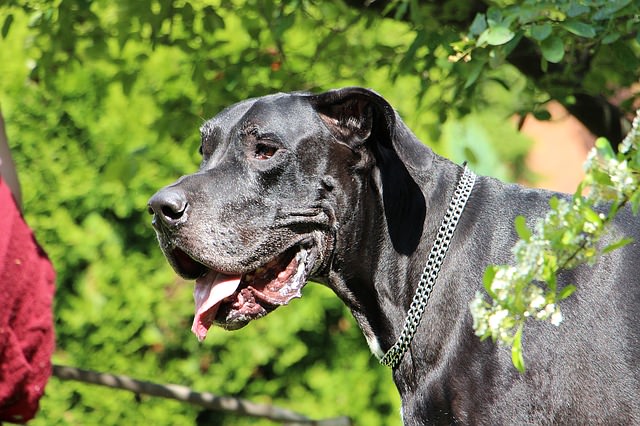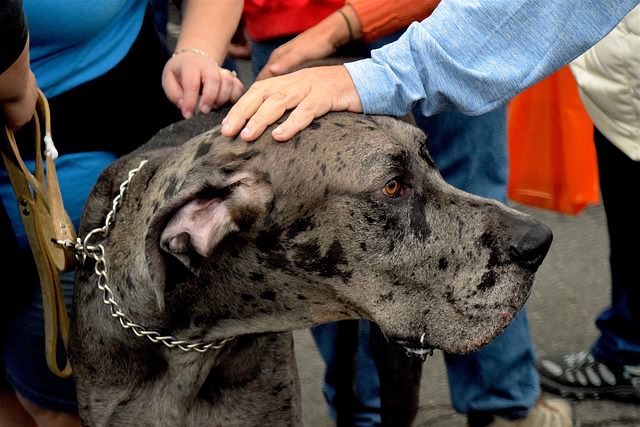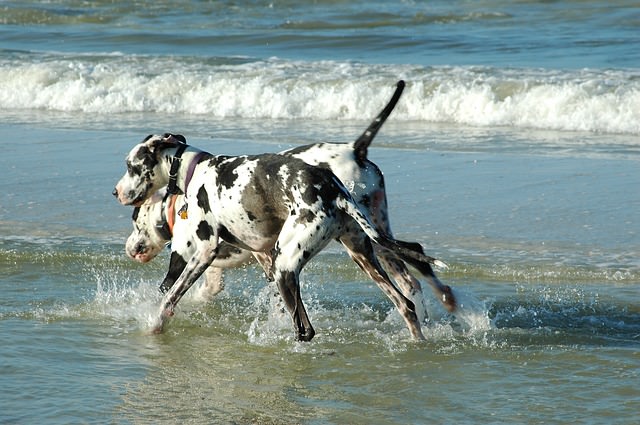As big and menacing as they may look, Great Danes tend to be Nervous Nellies on the inside. These gentle giants are prone to separation anxiety and obsessive behaviors like licking and chewing at their skin. For this reason, Danes are one of the most common breeds that can have acral lick granulomas – chronic, self-inflicted areas of hair loss and reddened skin.
Lick granulomas are different from hot spots in that they persist even after treatment for the original cause is completed. Some granulomas start when a dog experiences pain or itching in a certain spot. It is normal for a dog to lick the area in these circumstances, but if the licking becomes obsessive, it is a sign of a mental health issue like anxiety.
Great Danes and other large breed dogs tend to develop lick granulomas on the top and sides of their carpal or wrist joints. These areas are most often targeted because they are easy to reach from a normal lying position when a dog is bored or experiencing stress.
Onyx – the Dane in the photos above and below – gave himself a lick granuloma when his mom went into the hospital.
The constant licking abrades the skin, allowing bacteria to infiltrate the site and cause an infection. The location and appearance of the lesions are a major clue for veterinarians that they are dealing with acral lick granulomas, not just regular hot spots.
It is important to be sure that there is not an underlying medical cause for the licking like arthritis or bone cancer. For this reason your vet may recommend radiographs. Other causes like mange and certain tumors should be ruled out as well.

Treatments for lick granulomas include antibiotics, steroids, laser therapy, and anti-anxiety medications.
Since the root cause is often related to anxiety or boredom, it is imperative to address your Great Dane’s lifestyle. Some things to consider: have there been any major changes or stressful events that could have led to the licking? Is your dog getting enough exercise, playtime and one-on-one attention?

Redirecting your dog’s attention to a toy, chew bone, or a walk is helpful, should you catch him licking. Working with a professional trainer or behaviorist can also be beneficial to resolve long-term anxiety issues.

If your Great Dane is showing signs of an un-diagnosed mental health condition, seek your veterinarian’s advice and consider making positive changes to your dog’s lifestyle. Doggie daycare or a mid-day dog walker could make all the difference for a bored or stressed pup.
H/T to VCAHospitals.com
